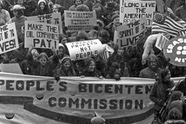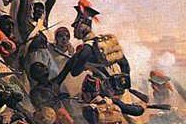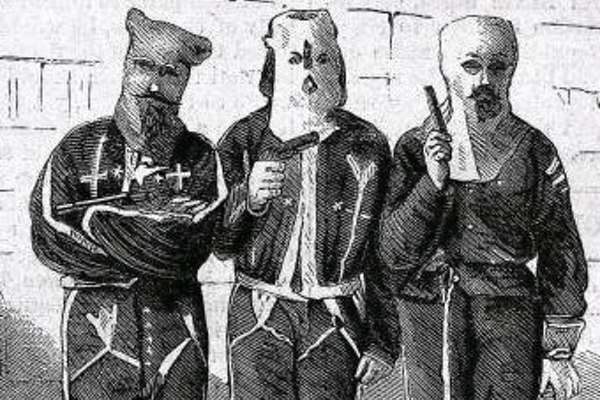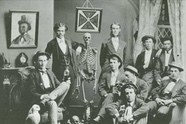The Roundup Top Ten for July 30, 2021

From Civil Rights to Math Education Equity, Bob Moses Led for Justiceby Hasan Kwame Jeffries"Ella Baker was fond of saying, “Give light and people will find the way.” Few did that better than Bob Moses, who died on July 25, 2021." |

The Bloody, Ongoing Fight of Haitians to Maintain Independenceby Alyssa Goldstein SepinwallSince an American military occupation begain in 1915, Haitians have struggled to maintain independence under the military and then economic domination of the United States. |

Addressing Gun Violence Means Looking Beyond Policingby Menika DirksonBetween 1969 and 1976, Philadelphia saw success with a program to connect youth to social services, education and work opportunity, but turned toward militarized policing in the 1970s. This history should guide urban leaders away from the "tough on crime" approach. |

Every American Needs to Take a History of Mexico Classby Gabriela Soto LaveagaUnderstanding the history of the US-Mexico border from the perspective of Mexico deepens understanding not just of the relationship between nations, but of the complexity of history as opposed to simplistic nationalist myths. |

Christopher Columbus And The Replacement-Level Historical Figureby Patrick WymanRather than debate Columbus's heroism or villainy, take a page from sports analytics: consider him a mediocre player and focus on the broader game being played. |

The U.S. has Never Tried a Comprehensive Approach to Mental Health Careby Hannah Zeavin"The United States has never redressed a massive shortage of mental health-care providers, and no unified national infrastructure is in place to assist the most vulnerable would-be patients with navigating the difficult process of finding competent care and paying for it." |

The People’s Bicentennial Commission and the Spirit of (19)76by Jason TebbeAs the national bicentennial approached, a group of New Left activists formed the People's Bicentennial Commission and adopted the symbols of the nation's founding to challenge the domination of the rich. |

Burning It All Downby L.D. BurnettLouis Trouillot's commentary on historiography and the slippage between history as fact and history as narrative shows how academic gatekeepers who resist revisionist challenges to their fields play into the hands of bad faith actors who would prefer to silence historians entirely. |

The KKK was also a Bosses' Organizationby Chad PearsonWhile the membership of the Reconstruction-era Klan was broad, its leadership was drawn from the Southern elite, whose vision of white supremacy was inseparable from the exploitation of Black labor. |

Historically White Fraternities and Sororities Should be Accountable for White Supremacyby Taulby EdmondsonAlthough many White Greek Letter organizations have upheld white supremacy, the role of Black fraternities and sororities in advancing demands for more inclusive campuses makes it difficult to call for a blanket ban on the social organizations. |